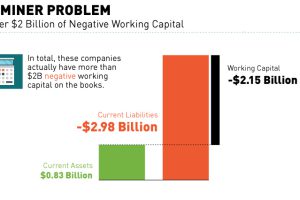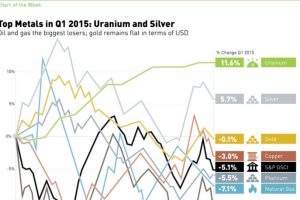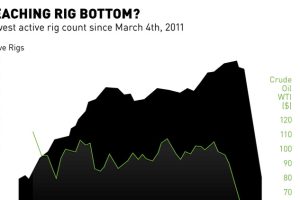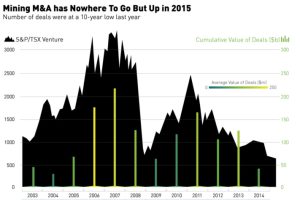Mapping Africa’s Wealth
The Chart of the Week is a weekly Visual Capitalist feature on Fridays.
The economy in Africa is on the rise, and financial hubs are beginning to emerge.
While the resource-rich African continent has seen only 13% growth in total private wealth over the past 10 years, the 3% spike in the past year alone indicates the growth is just warming up. Africa will also be home to 13 out of the 20 of the world’s largest megacities by 2100.
In this week’s chart, we take a look at Africa’s wealthiest cities, courtesy of this recent 2018 report from New World Wealth and AfrAsia Bank.
Africa’s Evolving Economy
While Africa has traditionally played a minor role in the world market, the continent is coming into its own as a hub for financial services and entrepreneurship.
Africa’s growing elite has added 19,000 millionaires over the past decade, with total private wealth totaling $2.3 trillion. These figures are predicted to increase by 34% over the next decade, reaching $3.1 trillion by the end of 2027.
The five wealthiest cities hail from three countries:
1. Johannesburg, South Africa ($276 billion)
Founded in the Witwatersrand Gold Rush of 1886, South Africa’s City of Gold is a hub for financial services, professional services (law firms and consultancies), construction, telecommunications, and basic materials.
2. Cape Town, South Africa ($155 billion)
One of South Africa’s three capital cities, Cape Town’s major sectors include real estate, financial services, retail, and tourism. Cape Town has the highest prime residential rates on the continent at US$6,100 per square meter, similar to cities such as Washington, D.C., or Berlin.
3. Cairo, Egypt ($140 billion)
A hub for Africa and the Middle East, Cairo’s major sectors include real estate, construction, financial services, and basic materials.
4. Lagos, Nigeria ($108 billion)
The clearing house for 80% of Nigeria’s imports, major sectors include basic materials, real estate, construction, telecommunications, transport, and financial services.
5. Durban, South Africa ($55 billion)
Home to the biggest shopping center in Africa – complete with 350 stores, 70 restaurants, 18 movie theaters, an IMAX theater, an indoor climbing wall, and a skate park designed by Tony Hawk – Durban’s major sectors include real estate, finance, healthcare, construction, retail, and transport.
The Full List of Cities
Here is a full ranking of the top 23 cities in Africa, based on New World Wealth’s data.
| Rank | City | Country | Total Private Wealth (USD) |
|---|---|---|---|
| #1 | Johannesburg | South Africa | $276 billion |
| #2 | Cape Town | South Africa | $155 billion |
| #3 | Cairo | Egypt | $140 billion |
| #4 | Lagos | Nigeria | $108 billion |
| #5 | Durban | South Africa | $55 billion |
| #6 | Nairobi | Kenya | $54 billion |
| #7 | Luanda | Angola | $49 billion |
| #8 | Pretoria | South Africa | $48 billion |
| #9 | Casablanca | Morocco | $42 billion |
| #10 | Accra | Ghana | $38 billion |
| #11 | Abidjan | Côte d’Ivoire | $27 billion |
| #12 | Dar es Salaam | Tanzania | $25 billion |
| #13 | Alexandria | Egypt | $25 billion |
| #14 | Kampala | Uganda | $16 billion |
| #15 | Windhoek | Namibia | $13 billion |
| #16 | Abuja | Nigeria | $13 billion |
| #17 | Addis Ababa | Ethiopia | $13 billion |
| #18 | Marrakesh | Morocco | $11 billion |
| #19 | Tangier | Morocco | $11 billion |
| #20 | Lusaka | Zambia | $10 billion |
| #21 | Maputo | Mozambique | $10 billion |
| #22 | Gaborone | Botswana | $9 billion |
| #23 | Mombasa | Kenya | $8 billion |
With a growth trajectory on the rise and renewed interest in African investment, what will Africa’s economy look like ten years from now?





